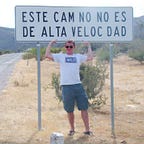The Post-COVID Society
When we emerge from our Coronavirus hibernation, what will the society we awaken into look like? Will it take the same form as the one preceding this outbreak, a cluster of independent yet fundamentally connected austerity states whose stated purpose is to raise profit? At the Aeroaquaponic company, our intention is to form a new, more egalitarian and self-sufficient society from the ashes of the one that Coronavirus will leave behind. We believe that this period will be transformational for the world populace, and that extended periods of working remotely, relying on our own skills, and the resultant decrease in housing costs will lead to a greater acceptance of non-traditional living across the globe.
The history of labor in our global society is one of increasing demands for relatively decreasing returns. At the moment, wage labor in particular is stagnant. This, combined with the large number of people working remotely, will drive a movement towards changing labor standards following the Covid outbreak. Those individuals whose work can now, demonstrably, be done remotely, will push for that to be made a permanent change. Likewise, those whose labor was considered essential during this crisis will likely see increasing pay and respect in society following this crisis. These two groups will make up a large enough portion of the population to push the country towards ecologically sound work-styles. Both remote working (decreased CO2 emissions and commercial real estate) and wage increases (more expendable capital) will make it possible for the average consumer to both live wherever they please and afford housing that was previously unaffordable.
Likewise, the case of the Coronavirus pandemic is one of individual ingenuity and community solidarity. Where there were inadequate ventilators, engineers and healthcare workers found solutions to save lives. Where there are insufficient face masks for the health industry, individuals are working tirelessly to sew more. Where the government failed to provide the resources for the people to survive, the people came together to make those resources available. What does this tell us about the post-Covid world? It may be a world where we finally learn to overcome individual differences to provide for the common good. In such a world, a co-farming community, such as that proposed by our nonprofit, would be the ideal manner of living. By working collectively to farm on an inexpensive and productive system, we could ensure that our neighbors are always fed, while they simultaneously do the same for us.
The decrease in housing costs is a foregone conclusion in an economic downturn such as this. Housing is the next major bubble to burst in this economic crisis, and when that happens, many will be without their formerly “owned” property. This will result in high supply, and the demand will remain. The resulting drop in housing prices will also correspond to land values and the cost of construction, although such values will vary throughout our society. Either way, it will be less of a barrier to building our co-farming system, as the individual or group will be increasingly able to afford to start such a community.
In the world that follows the 2020 Coronavirus pandemic, virtually nothing will look as it did before. There will likely be sweeping changes in the way people live, work, eat, play, and interact with one another. We can build a better world, like the phoenix from its ashes, and make it one whose goal is people, not profit. At Aeroaquaponic, this is our main goal: to unplug from the consumerism which led to this point, and make living a fulfilling task again. After Covid, this goal will seem not only closer, but more appealing as well to people all over our planet.
